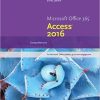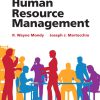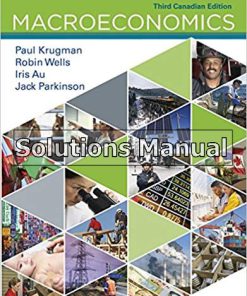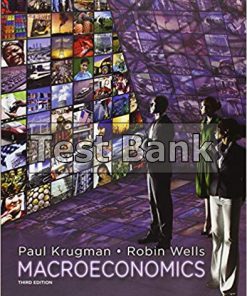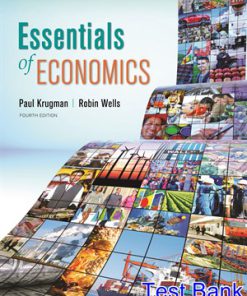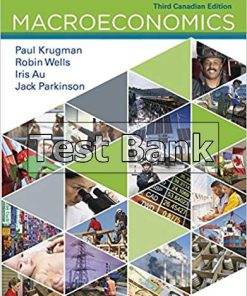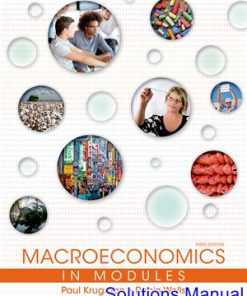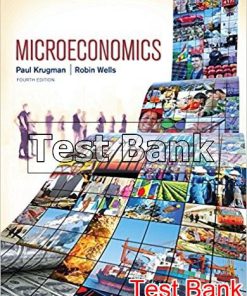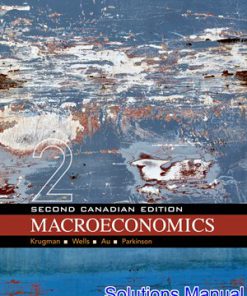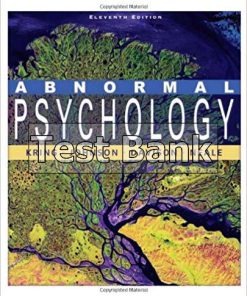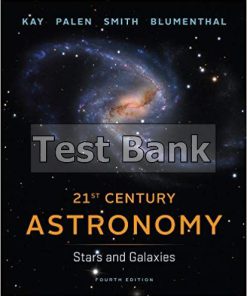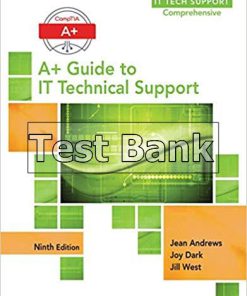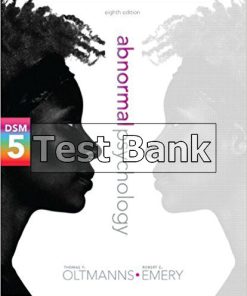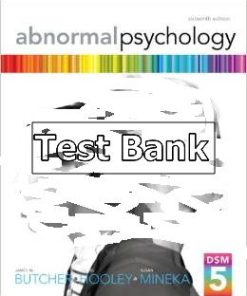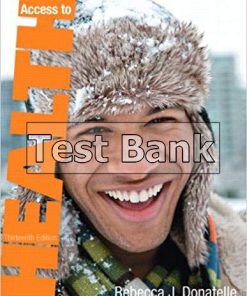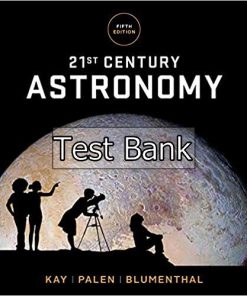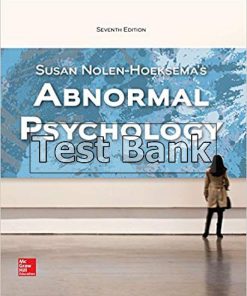Macroeconomics 4th Edition Krugman Test Bank
$50.00 Original price was: $50.00.$26.50Current price is: $26.50.
Macroeconomics 4th Edition Krugman Test Bank.
This is completed downloadable of Macroeconomics 4th Edition Krugman Test Bank
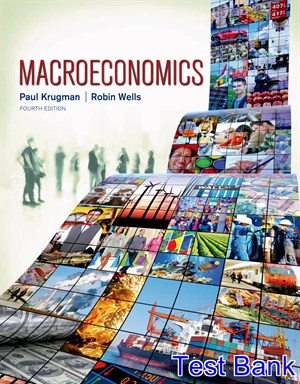
Product Details:
- ISBN-10 : 1464110379
- ISBN-13 : 978-1464110375
- Author: Paul Krugman (Author), Robin Wells (Author)
When it comes drawing on enduring economic principles to explain current economic realities, there is no one readers trust more than Paul Krugman. With his bestselling introductory textbook (now in a new edition) the Nobel laureate and New York Times columnist is proving to be equally effective in the classroom, with more and more instructors in all types of schools using Krugman’s signature storytelling style to help them introduce the fundamental principles of economics to all kinds of students.
Table of Content:
Chapter 1:
(a) The principle “Resources are scarce” applies because at the local discount store, the price of the same item is less when compared to that of the local department store. The difference amount can be used to get some other product or benefit which is useful to us.
(b) As the concept is linked to budget, the principle “Resources are scarce” applies. The limited money in our hand is used for the trip so we cannot cross the budgeted level.
(c) Here, the students are trying to dispose of their used materials at whatever price which they could fetch. The principle that is underlying this attitude is “People usually exploit opportunities to make them better off.”
(d) As the hurricane caused huge damage to the residential houses, people are ready to procure home building materials on a large scale even though the supply is not enough to meet the demand. So the prices rose high. This stands as an example for the principle “Overall spending sometimes gets out of line with the economy’s productive capacity.”
(e) The money exchanged between the friends is for different objects. This is an indication for the principle “One person’s spending is another person’s income.”
(f) The decision to take another cup of coffee to take for another hour of study clearly indicates the principle “How much; is a marginal decision.”
(g) The facilities at the lab are limited and they need to be made available to every student. This reminds us the principle “Resources are scarce” and they should be used to the optimum.
(h) All it takes to pursue a semester abroad is ‘forgoing to complete graduation early.’ “The real cost of something is what you must give up to get it” is the underlying principle.
(i) All the bikes sell for the same price. This means that nobody can sell their bike at a higher price because there are other similar bikes which are available at a lower price. So we can infer the underlying principle as “Markets move toward equilibrium.”
(j) It is an understanding between us to perform lab experiment and to write the lab report. One is good at one point and another is wise in the other work. This is sharing of work which indicates the principle “gains from trade.”
(K) Driving without a valid driving license is illegal. If people are left to their will, they will drive without license and without proper training and this will result in accidents. To avoid this, the State governments mandate that passing driving exam is necessary to drive. This is a clear example of “When markets don’t achieve efficiency, government intervention can improve society’s welfare.”
(l) The government’s policy of tax reduction to parents has resulted in your increased spending level during the spring break vacation. The principle “Government policies can change spending” is illustrated here.
Chapter 2
(a) Bermuda can produce hotel stays considering the opportunity cost of 1 metric ton of fish. The opportunity cost of 1 metric ton of fish is 2,000 hotel stays. Bermuda can produce 2,000 hotel stays if it forgoes the production of 1 metric fish.
Opportunity cost is the value of benefit that one might have received from choosing the next-best alternative. It is the value of that alternative which you have chosen over other alternatives.
If all fishermen are used by hotels then Bermuda can produce 774,000(2,000× 387) hotel stays. Thus, if all available resources are utilized in hotel industry, then Bermuda could produce 1,328,400 (774,000+555,400) total hotel stays.
(b) The opportunity cost of 2,000 hotel stays is 1 metric ton of fish. Available hotel workers produce 555,400 hotel stays. If Bermuda decides to use hotel employees for fishing, then it can produce  metric tons of fish.
metric tons of fish.
Thus, Bermuda can produce 664.2(387+277.2) if all the available resources are utilized to produce to fish.
(c) The production possibility frontier shows different combinations of two goods which can be produced with the given resources. It gives an idea about alternative production possibilities of two goods. Technique of production remains constant in terms of production possibility frontier.
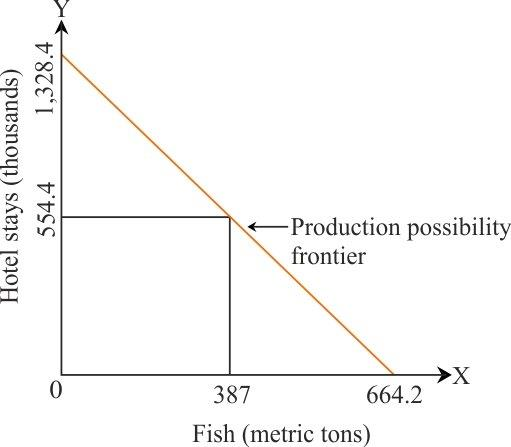
In the above figure, quantity of fish is measured on X-axis and quantity of hotel stays is measured on Y-axis. The figure indicates that the production possibility frontier is straight-line considering the constant opportunity cost.
People Also Search:
macroeconomics krugman
macroeconomics 4th edition download scribd
macroeconomics
macroeconomics 4th edition testbank download pdf
krugman’s macroeconomics for ap 4th edition
macroeconomics 4th edition
macroeconomics 4th edition krugman
Instant download after Payment is complete
You may also like…
Solutions Manual
Macroeconomics Canadian 3rd Edition Krugman Solutions Manual
Economics


